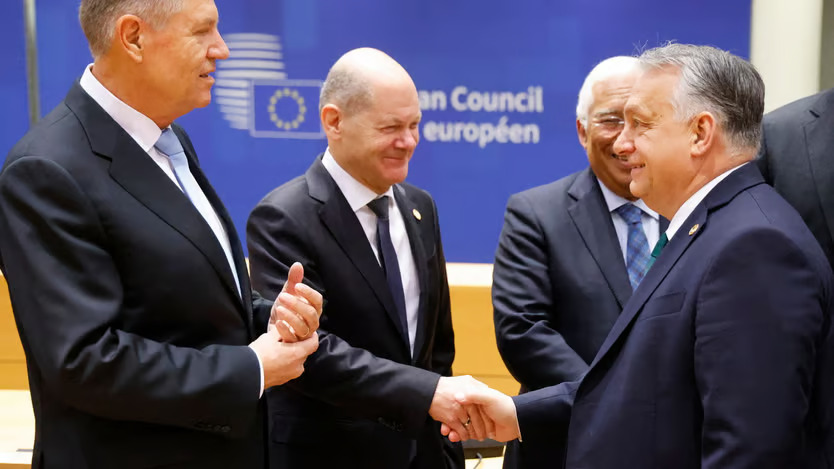Efficient EU Summit Approves €50 Billion Aid for Ukraine, Despite Orban’s Objections
The European Union’s 27 national leaders usually require lengthy, late-night deliberations to reach agreements. However, on February 1st, they astonishingly approved €50 billion ($54 billion) in aid for Ukraine within just an hour, as part of an update to the bloc’s budget. This swift agreement serves as a much-needed boost for Kyiv, facing a critical budget shortfall, although the funds will be disbursed over the next four years. The remarkably smooth approval also underscores the limitations of Viktor Orban’s influence, the autocratic Hungarian prime minister, who had vowed to block further EU support for Ukraine.
Ukraine grapples with a budget deficit exceeding $40 billion this year due to elevated military expenditures and diminished tax revenues amid ongoing conflict. While support from the United States would have been beneficial, it has been hindered by partisan disputes, heightening the importance of EU assistance. The bloc’s leaders, including Emmanuel Macron of France and Olaf Scholz of Germany, initially aimed for agreement on Ukraine’s aid at a December summit, but Orban vetoed it. However, he did permit Ukraine to initiate formal talks about potential EU membership.
Leading up to the recent summit, concerns of potential deadlock loomed. Orban, known for adopting a pro-Russia stance and engaging in confrontations with EU institutions in Brussels, had previously vetoed agreements and complicated matters. The EU had suspended significant funds over apprehensions that Hungary was violating rule-of-law obligations. The threat of vetoes has been a tactic for Orban to secure concessions from the EU.
This time, the patience of Hungary’s EU counterparts appeared to have worn thin. Diplomats hinted at potential repercussions if Hungary continued to impede the agreement on Ukraine’s funding. Some even considered the possibility of depriving Hungary of its vote in EU bodies, while others pointed out the economic repercussions, given Hungary’s substantial dependence on EU transfers, constituting 3-4% of its GDP.
Amidst speculation of potential reprisals, Orban eventually relented. The reason behind his decision remains unclear, but the prospect of inconveniencing 26 other EU leaders and hogging the spotlight may have sufficed for his purposes. Despite engaging in meetings with Scholz, Macron, and Italy’s Giorgia Meloni, Orban appears to have gained little in return.
While Orban may be perceived as the primary loser in this summit, Ukraine emerges as the main beneficiary. Once the European Parliament approves the deal, the promised €50 billion will swiftly reach Ukraine, averting a looming budget crisis. Importantly, EU member states managed to avoid being held hostage by internal disputes, at least for the time being, showcasing a semblance of unity within the EU.

